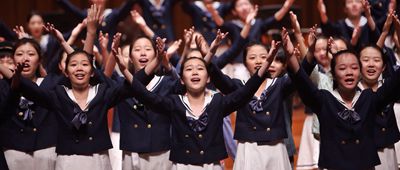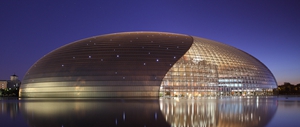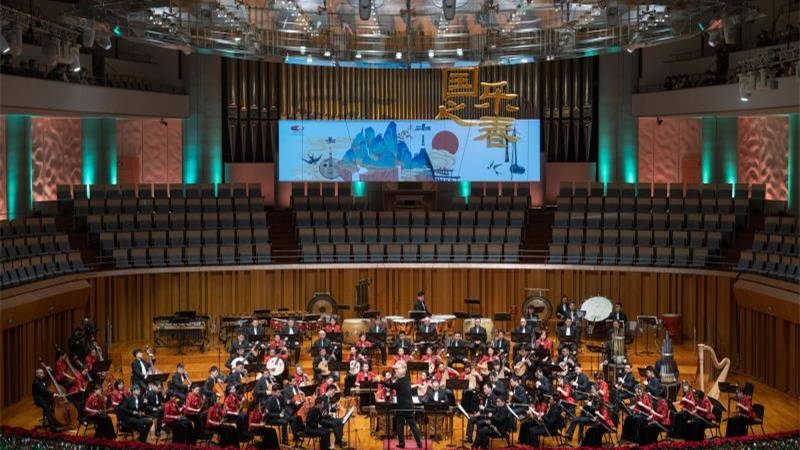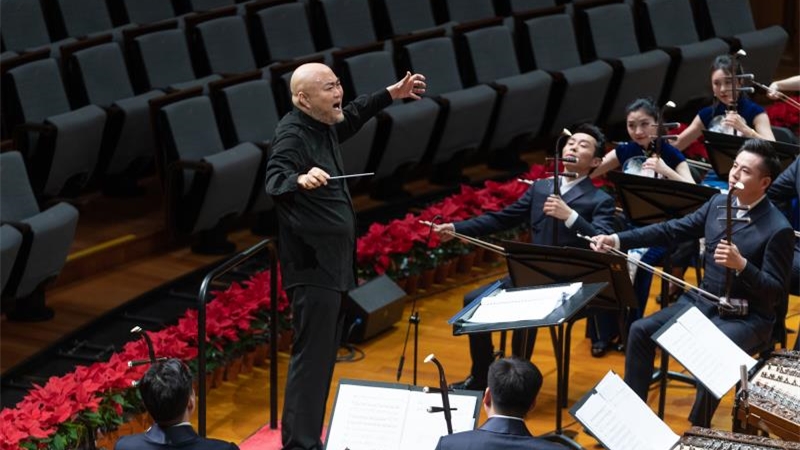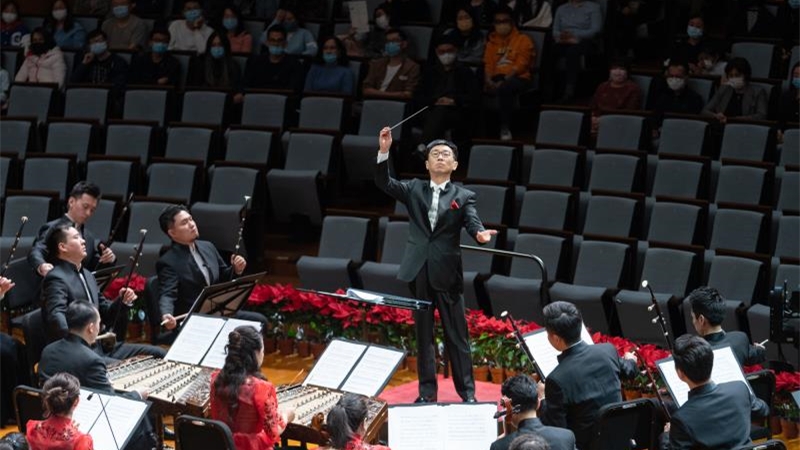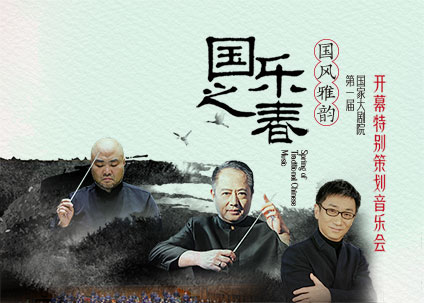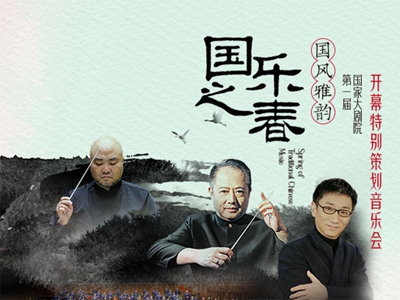The First NCPA Spring of Traditional Chinese Music opened on the evening of April 8
th. At the opening concert, conductors LI Xincao, LÜ Jia and LIU Sha joined hands with the China National Traditional Orchestra in performing well-known and distinctive Chinese orchestral works including
Cloudy Mountains and Glimpses of Geese,
General’s Order,
Twelve Beauties of Prince Yong and
Seven Colours of Harmony. LI Xincao and LÜ Jia made their debut in the Chinese music scene. Their wonderful interpretations of classic and new Chinese pieces brought a beautiful and unforgettable experience to the live audience.
The opening concert kicked off with
Cloudy Mountains and Glimpses of Geese. The work is developed, varied and reconstructed around the theme of Chaozhou zheng music
Eighteen Meters of Hujia. Under LÜ Jia’s baton, all instruments were played together, reviving the style of Han-Tang ceremonial music and the magnificence of Chaozhou music. LÜ Jia was rejoiced and excited at conducting a Chinese orchestra for the first time. He said in an interview, “This was my first time to conduct a Chinese orchestra. I felt a bit nervous but excited. I considered it a new challenge and pleasure to work with traditional Chinese musicians. Especially, I felt a sense of accomplishment when interpreting the colours, lines and rhythms contained in the music. Although I never conducted a Chinese orchestra before, I’m always concerned about the development of Chinese music. How to develop and promote our national treasures? That’s a very important and urgent issue confronting everyone. As a conductor, I will make some contributions to this. The NCPA Spring of Traditional Chinese Music is a particularly excellent art brand. That’s a good start for Chinese music.”
Twelve Beauties of Prince Yong, which was played at the opening concert, is a work composed by ZHANG Tianshuo with inspiration from the painting
Twelve Beauties of Prince Yong by Emperor Yongzheng at the invitation of the conductor LIU Sha. Skillfully, the composer divided the twelve pictures into four movements, and then held all the pictures together with flowing rhythms. Under LIU Sha’s baton, the pictures of Qing Dynasty beauties appeared before the eyes in the form of musical notes, making the audience feel as if they were in the pictures enjoying the graceful bearing of these peerless belles. LIU Sha is the permanent conductor of the China National Traditional Orchestra. For the presence of the China National Traditional Orchestra at the opening ceremony of the NCPA Spring of Traditional Chinese Music under his leadership, he said, “Traditional Chinese orchestras have developed for 100 years, especially have been achieving rapid development over the past twenty years. Great progress has been made in everything from instrument fabrication to the level of contemporary performers and orchestras and to artistic creation. However, there was never a platform for mutual exchanges and co-presentation. But now, the NCPA Spring of Traditional Chinese Music provides us with a good platform, which is of great significance for the development and popularisation of Chinese music.”
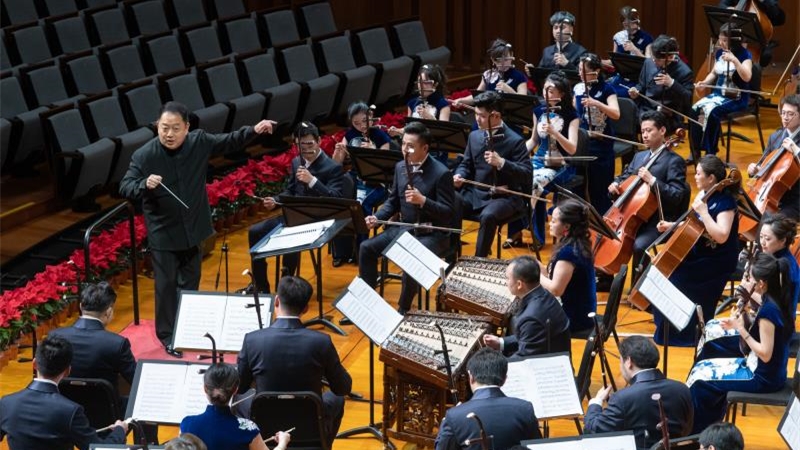
The conductor LI Xincao, who also conducted a Chinese orchestra for the first time, rendered traditional orchestral works Guo Feng and Silk Road in the second half. Guo Feng, a new work commissioned by the China National Traditional Orchestra, unfolds with variations around the theme of the traditional piece Three Variations on Plum-blossoms. Under LI Xincao’s leadership, the orchestra gave abundant timbres to their instruments, which were played in a progressive manner with the national customs and national spirit interpreted to the utmost extent. When mentioning his first time to conduct the Chinese orchestra, LI Xincao said, “I have little experience in conducting large-scale traditional orchestral music. It was the first time I had conducted a complete large-scale traditional orchestral work in Beijing. I feel highly honoured and thankful for having the chance to become a conductor at the opening concert of the NCPA Spring of Traditional Chinese Music. Before this, I had anticipated a lot and made adequate preparations. In my view, Eastern and Western music both have something in common. My requirements for the musical character in Western music also apply to Chinese folk music. I believe that there must be a great response to the NCPA Spring of Traditional Chinese Music, which will get enriched more in the future.”
Designed to carry forward the national culture and inherit the spirit of Chinese music, the Spring of Traditional Chinese Music is the first art festival to be launched by the NCPA on the theme of traditional Chinese music. It serves as a supplement to the “NCPA China Orchestra Festival” in alternate years, enriching the music-themed brand line of the NCPA. Themed “Elegant Melody”, this year’s NCPA Spring of Traditional Chinese Music has opened its door to many Chinese orchestras, which will render different genres of Chinese music within 21 days. More than 30 famous contemporary Chinese music masters will gather to give performances in both traditional and modern styles to highlight the artistic inheritance and development of Chinese music.
On April 16th, the China Broadcasting Chinese Orchestra will appear with famous soloists to perform a number of Chinese classics that were premiered by it and have become well-known to every household. On April 20th, the day of “Grain Rain”, the Beijing Chinese Orchestra will sow the hope of spring with music.
On April 21
st, the China Conservatory of Music Chinese Orchestra will take the stage. On April 27
th, the Suzhou Chinese Orchestra will hold a concert, at which the ancient Bianzhong chimes and pipe organ will share the stage while the Kunqu opera and the orchestra will contrast finely with each other. The Chinese adaptations of Western classical music will show the diversified innovations of Chinese music.
The Hebei Chinese Orchestra will show the charm of Hebei in the North of the River, a large-scale traditional orchestral work; the Central Conservatory of Music Chinese Chamber Orchestra will draw a picture of spring scenery on the traditional stringed and woodwind instruments to start a journey of new Chinese music.
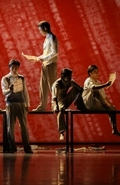 Repertoire
Repertoire
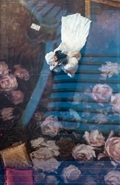 Films
Films
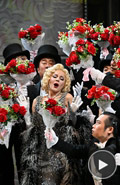 Videos
Videos
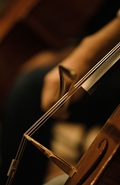 Podcast
Podcast
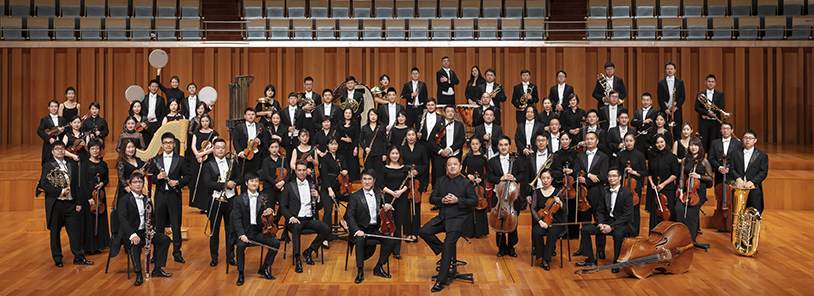 China NCPA Orchestra
China NCPA Orchestra
 China NCPA Chorus
China NCPA Chorus
 NCPA Resident Singers
NCPA Resident Singers
 NCPA Drama Ensemble
NCPA Drama Ensemble
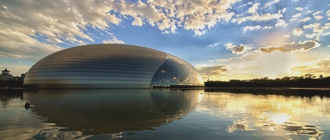 Buildings
Exhibitions
Buildings
Exhibitions
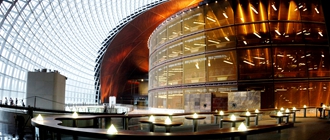 Opening Hours
Guided Tours
Services
Getting Here
Opening Hours
Guided Tours
Services
Getting Here
 Western Cuisine
NCPA Café
Arts Gifts
Western Cuisine
NCPA Café
Arts Gifts









